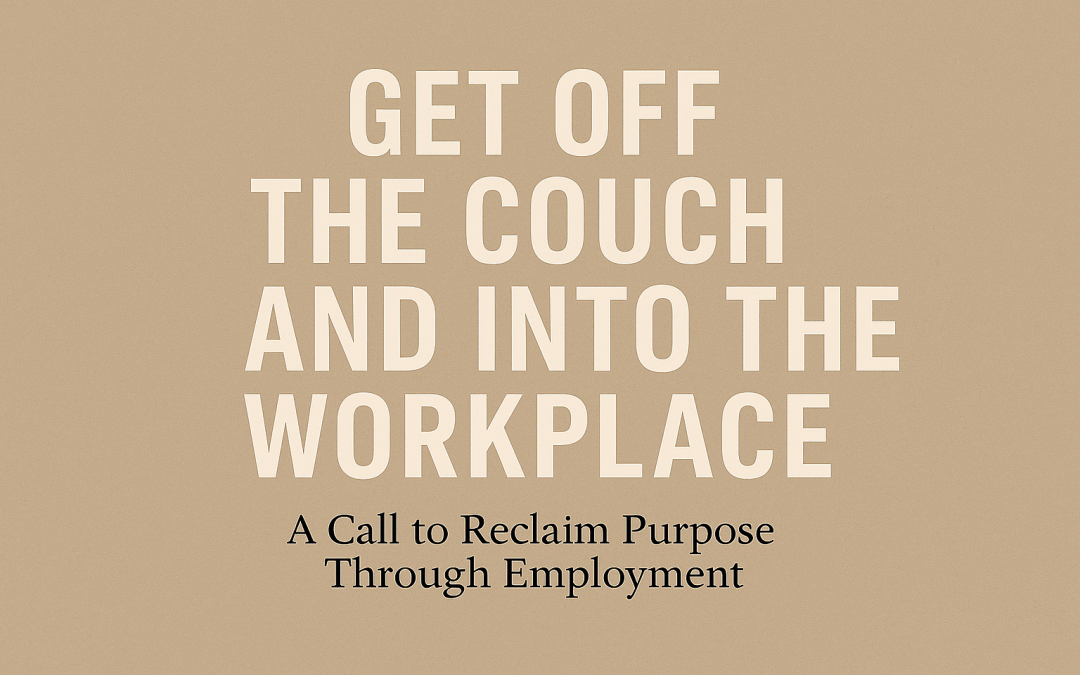Over the past few years, I have met several people who have chosen to stay home from work. Nationally, this has become a significant issue, particularly for men. As Nicholas Eberstadt has chronicled in his highly praised book, Men Without Work, the work rate for men of prime working age (25-54) is at its lowest since 1940, during the great depression. One in six men in this age group has no paying job. Nearly one in eight is not only out of the workforce, but he is also not looking for work. These individuals “now depend on society instead of produce for society.” Eberstadt labels this “America’s invisible crisis,” which includes members of all races and cultures.
Is it good when males do not work? No. Do men typically live virtuous and productive lives when they are not working? I have yet to ask a group where the answer was, “Yes.” Think Appalachia and inner-city St. Louis along with locations north, south, east, and west of those areas. Typically, there is a correlation: the fewer males who are working, the more males involved in drug abuse, crime, and mental illness, and the greater the family breakdown. This is not just a personal issue, but a societal one.
Through the years, I have observed many different cultures. I spent significant time in Papua New Guinea forty years ago. One thing that struck me in the bush country was the number of males who did not work. Even though their culture was primitive, it created extensive problems. I suspect this is among the reasons Paul wrote to the Thessalonians who quit work to wait for the second coming: “For even when we were with you, we gave you this rule: ‘The one who is unwilling to work shall not eat (II Thess. 3:10).’”
This is not only a sociological issue, it is a spiritual one. As David French wrote in the New York Times, “What men need is not for others to do things for them. They need to do things for others: for spouses, for children, for family and friends, and colleagues.” Work is not just a means of earning a living, but a way to fulfill our spiritual duty and find meaning in our lives.
God is a Worker. Scripture uses work-related language to describe Him. He is a:
- Worker (Gen. 1-2)
- Builder/architect (Prov. 8:27-31)
- Teacher (Matt. 7:28-9)
- Composer (Deut. 31:19)
- Metalworker (Is. 1:24-6)
- Potter (Is. 31:9)
- Farmer (Hos. 10:11)
- Shepherd (Ps. 23:1-4)
- Lawyer (I John 2:1)
The stigma surrounding work can be traced back to the Garden of Eden. God allowed Adam and Eve to live lives in pursuit of pleasure. They sinned, and so God cursed them with work in Genesis 3.
Sarcasm Alert!
No, God gave Adam and Eve work before the Fall. Work itself was not the curse. Toil by the sweat of the brow was the curse. Work was a blessing before the Fall and remained essential for the human race afterward. Productivity is necessary for people to live lives with meaning. Without it, life will contain less meaning: meaningless. All people, both young and old, need to work. Statistics show that too many men right now are now working; however, this principle applies to anyone who is jobless. This is not just a societal necessity, but a divine plan for our lives. It is in everyone’s best interest for each individual of working age to get off the couch and into the workplace. Otherwise, life’s purpose will be suspended.
In my next post, I will offer specific steps to encourage more men (and women, if applicable) to enter the workforce. Stay tuned!
I’m Mark Edge; thanks for reading.
______________________________
You can purchase Mark’s new book Holy Chaos How To Walk with God in a Frenzied World here:https://www.amazon.com/s?k=mark+edge&crid=3B1BM6W3LHOG0&sprefix=%2Caps%2C137&ref=nb_sb_ss_recent_2_0_recent

